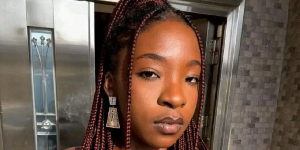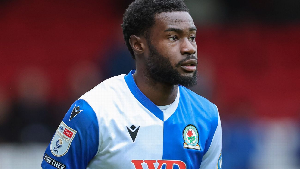In 2006, ten Nigerian military generals travelling to a private security planning meeting in the south of the country died in an aircraft crash.
The crash claimed the lives of eight major-generals, two brigadier generals and two other personnel, while six people survived.
Devastated by what he described as a ‘monumental national tragedy,’ then President Olusegun Obasanjo hastily returned home from an International Monetary Fund meeting he was attending at the time in Singapore.
After declaring three days of mourning, Mr Obasanjo attended the interment of the deceased at the military national cemetery in Abuja. Pictures of him comforting the widow of the pilot of the plane made rounds at the time.
About fifteen years later, a similar tragedy struck Nigeria again.
Last month, Nigeria’s former Chief of Army Staff, Ibrahim Attahiru, alongside ten other military personnel died from a military plane crash in Kaduna.
Like his predecessors, President Muhammadu Buhari also declared days of mourning and other mourning rituals in memory of the deceased, but he did not show up as Mr Obasanjo did.
Many Nigerians criticised Mr Buhari for failing to attend the funeral rites of the personnel, fueling accusations that the president was always absent from critical national occasions and he does not show empathy during national disasters or tragedies.
The president’s detractors believed his attendance would have amounted to a morale booster to the troops who have been battling a deadly insurgency for over a decade.
Even though the first and second ladies as well as the vice president later visited the families of the deceased soldiers, many held the belief that a presidential appearance at the funeral would have held more weight.
Presidential spokesperson, Garba Shehu, would later come to defend his principal, saying the president’s non-appearance was because Mr Buhari dislikes the traffic snarls that occur as a result of his large entourage to functions.
However, Mr Buhari has always been criticised for not showing empathy with Nigerians in periods of disaster.
His absence at the funeral typifies his seeming reticent leadership style that has been consistent for the better part of his six years in power.
Absence in Nigerian Media
Although he granted a rare double-headed interview last week, the president has engaged more with Nigerians through proxies, spokespersons and press statements.
Although taciturn at home, Mr Buhari has been more receptive to foreign journalists and he speaks to foreign audiences, a move that sometimes comes with presidential gaffes.
Some believe his seeming susceptibility to these gaffes is one of the reasons the president is tight-lipped to the Nigerian media.
Although other previous presidents granted more one on one interviews to media houses, as well as stand-up interviews with reporters, Mr Buhari’s office has said it is the president’s style.
In some of the few occasions that the president has spoken back home, he has made unempathetic rhetorics that sometimes spark outrage.
This has often not been helped with some statements released by his aides, who some have accused of lacking diplomacy and hardly ever showing empathy to the Nigerian people.
No Empathy even when school children are kidnappedIn the wake of the rising wave of insecurity in recent years which has sparked a bout of school kidnappings in Zamfara, Niger, Kaduna, Katsin – the president’s hometown – and most recently Kebbi State, the president has refused to visit any of the schools.
The kidnap of 344 students of Government Science Secondary School, Kankara, Katsina State, was especially peculiar because it happened when the president was in the state for a “private visit.” Yet, he did not visit the school.
Rather, the president’s coterie of aides on these occasions released statements to air the president’s mind.
Nigeria has witnessed at least six cases of mass kidnapping of students and pupils from their schools since Mr Buhari assumed office. The president has not visited any of the schools nor visited families of the victims.
Not Just Mass Kidnappings
It took about a month before Mr Buhari addressed Nigerians in the wake of the uncertainties that trailed the outbreak of COVID-19 in the country last year February. By then, many other presidents had addressed their citizens multiple times at a time of global confusion about the pandemic.
Likewise, last year, when a tragic gas explosion struck the Abule Ado area of Lagos State killing at least 20 Nigerians, President Muhammadu Buhari refused to visit the scene of the incident. Instead, Lagos State Governor Babajide Sanwo-Olu flew to Abuja to show the president pictures of the ruins from the explosion.
Again unlike him, on January 27, 2002, when there was a blast of a large stock of military high explosives at a storage facility in Lagos which killed many residents as they fled and trampled on one another, former president Obasanjo immediately visited the scene the next morning to commiserate with the affected residents.
Other president’s reaction to disasters
Although the timeliness of their visits varies from country to country, world leaders often empathize with victims of disasters in their countries by visiting the scenes of the accident to calm frayed nerves and instil hope in their people.
Russian President Vladimir Putin in March 2018, visited the scene of a fire in a Siberian shopping mall that killed at least 64 people, 41 of them children. At another time, he laid flowers at a makeshift memorial to the victims of a fire incident in the Kemerovo region of the country.
“What’s happening here? This isn’t war, it’s not a spontaneous methane outburst. People came to relax, children,” he said.
“We’re talking about demography and losing so many people,” Mr Putin said in a meeting with ministers in Kemerovo. “Why? Because of some criminal negligence, because of slovenliness. How could this ever happen?” he asked.
Like him, last March, a former United States’ President, Donald Trump, visited tornado-ravaged disaster areas in Tennessee, which left 25 dead and dozens more injured.
“This is real devastation like you’ll never see, hopefully, again,” Mr Trump said. “This was about as big a tornado as you can have. It was 50 miles long, which is extraordinarily long, and a very wide one. And you see what’s happened. They got very little warning. They get a phone call and boom, the tornado is on them.”
In response to a question on the message he had for the families of the victims, he said: “I have a message for the families of those that lost their lives. We love them, they’re incredible people, it’s an incredible state. Great people, it’s a great state, and they have great leadership.”
In November 2012, a former Ghanaian President John Mahama cut short an intercountry campaign tour to visit a disaster site in Accra, barely 24 hours after nine people died and nearly 70 were rescued from a building collapse.
When UK Prime Minister, Boris Johnson, delayed for six days his visitation to an area hit by devastating floods last year, he was shunned by a woman and heckled by the residents in Yorkshire who booed him saying “where’ve you”, “you took your time.”
General News of Saturday, 19 June 2021
Source: www.premiumtimesng.com
President Buhari hardly shows empathy during national disasters - Report
Entertainment












